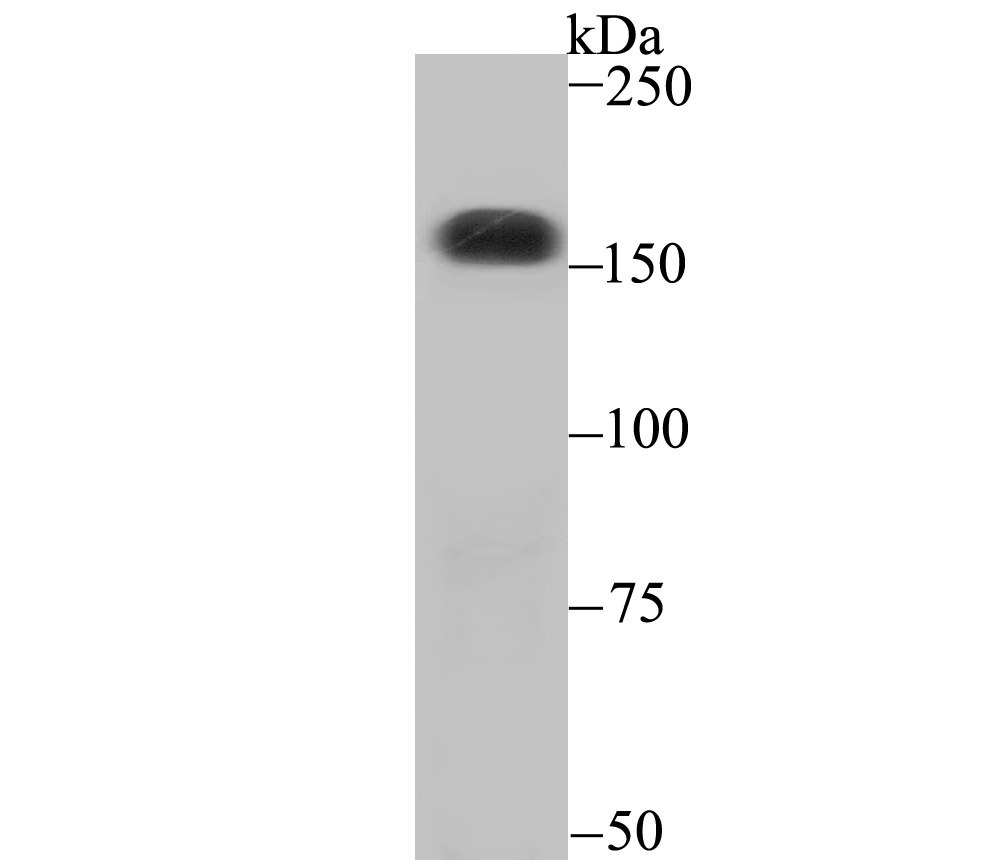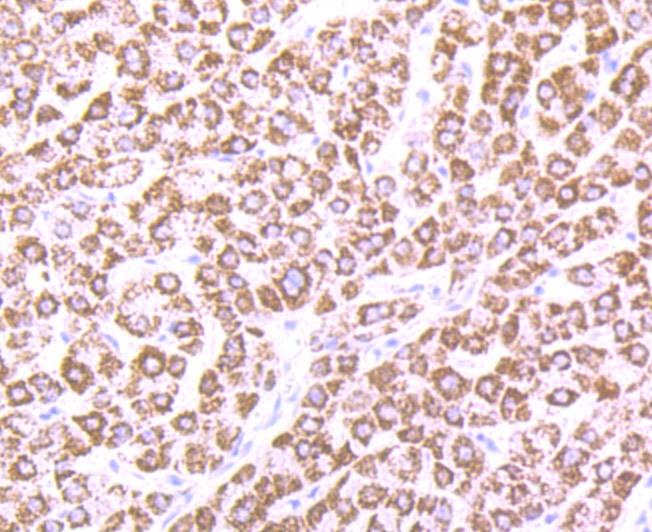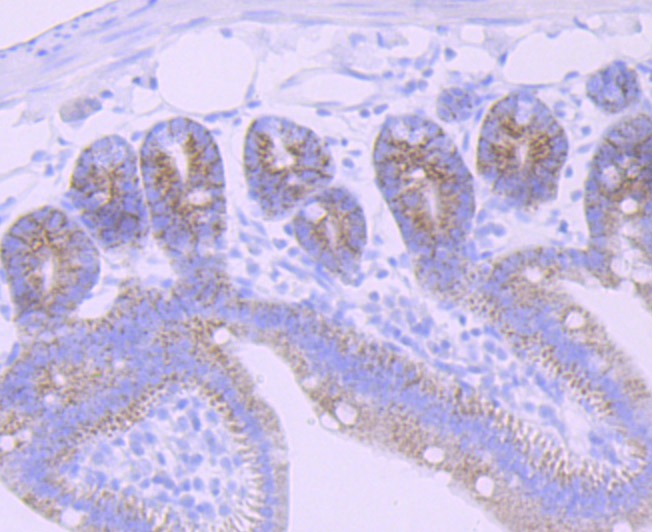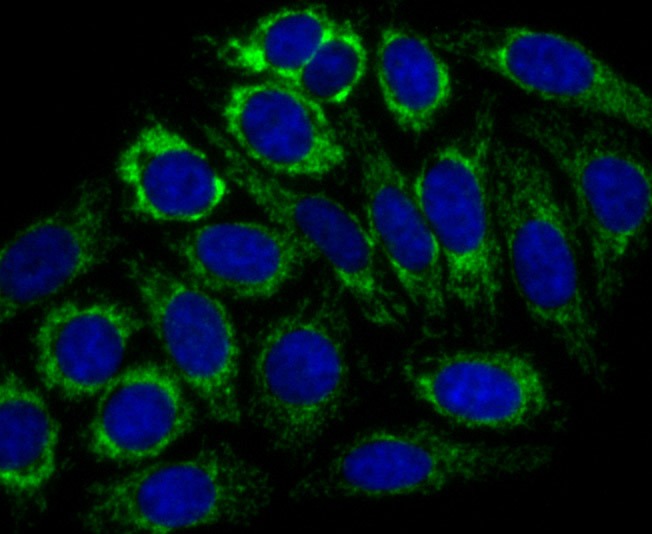Shopping Cart
Remove All Your shopping cart is currently empty
Your shopping cart is currently empty
Anti-CPS1 Antibody (3F443) is a Rabbit antibody targeting CPS1. Anti-CPS1 Antibody (3F443) can be used in ICC,IF,IHC,IP,WB.
| Pack Size | Price | USA Warehouse | Global Warehouse | Quantity |
|---|---|---|---|---|
| 50 μL | $298 | 7-10 days | 7-10 days | |
| 100 μL | $497 | 7-10 days | 7-10 days |
| Description | Anti-CPS1 Antibody (3F443) is a Rabbit antibody targeting CPS1. Anti-CPS1 Antibody (3F443) can be used in ICC,IF,IHC,IP,WB. |
| Synonyms | mitochondrial, Cps1, Carbamoyl-phosphate synthetase I (CPSase I), Carbamoyl-phosphate synthase [ammonia], mitochondrial |
| Ig Type | IgG |
| Clone | 3F443 |
| Reactivity | Human,Mouse,Rat |
| Verified Activity | 1. Western blot analysis of CPS1 on SiHa cell using anti-CPS1 antibody at 1/500 dilution. 2. Immunohistochemical analysis of paraffin-embedded human liver tissue using anti-CPS1 antibody. Counter stained with hematoxylin. 3. Immunohistochemical analysis of paraffin-embedded mouse small intestine tissue using anti-CPS1 antibody. Counter stained with hematoxylin. 4. ICC staining CPS1 in HepG2 cells (green). The nuclear counter stain is DAPI (blue). Cells were fixed in paraformaldehyde, permeabilised with 0.25% Triton X100/PBS.     |
| Application | |
| Recommended Dose | WB: 1:500-1000; IHC: 1:50-200; ICC: 1:50-200 |
| Antibody Type | Monoclonal |
| Host Species | Rabbit |
| Construction | Recombinant Antibody |
| Purification | ProA affinity purified |
| Appearance | Liquid |
| Formulation | 1*TBS (pH7.4), 1%BSA, 40%Glycerol. Preservative: 0.05% Sodium Azide. |
| Research Background | The multicomplex protein, carbamoyl-phosphate synthetase-aspartate carbamoyl transferase-dihydro-orotase (CAD), consists of three distinct proteins, carbamoyl phosphate synthetase 2 (CPS2), aspartate transcarbamylase, and dihydro-orotase, which catalyze the second and third steps of pyrimidine biosynthesis. CAD is allosterically regulated by the phosphorylation of CPS2 by cyclic AMP-dependent protein kinase, and this activation enables CPS2 to catalyze the rate-limiting step of pyrimidine synthesis. CAD is expressed in brain and skeletal muscle. A related protein, carbamoyl phosphate synthetase 1 (CPS1) is expressed in liver. CPS1 catalyzes the rate-limiting step in the urea cycle, and deficiency of CPS1 is an autosomal recessive disorder that causes hyperammonemia. |
| Conjucates | Unconjugated |
| Immunogen | Recombinant Protein |
| Uniprot ID |
| Molecular Weight | Theoretical: 165 kDa. |
| Stability & Storage | Store at -20°C or -80°C for 12 months. Avoid repeated freeze-thaw cycles. |
| Transport | Shipping with blue ice. |
| Size | Quantity | Unit Price | Amount | Operation |
|---|

Copyright © 2015-2026 TargetMol Chemicals Inc. All Rights Reserved.